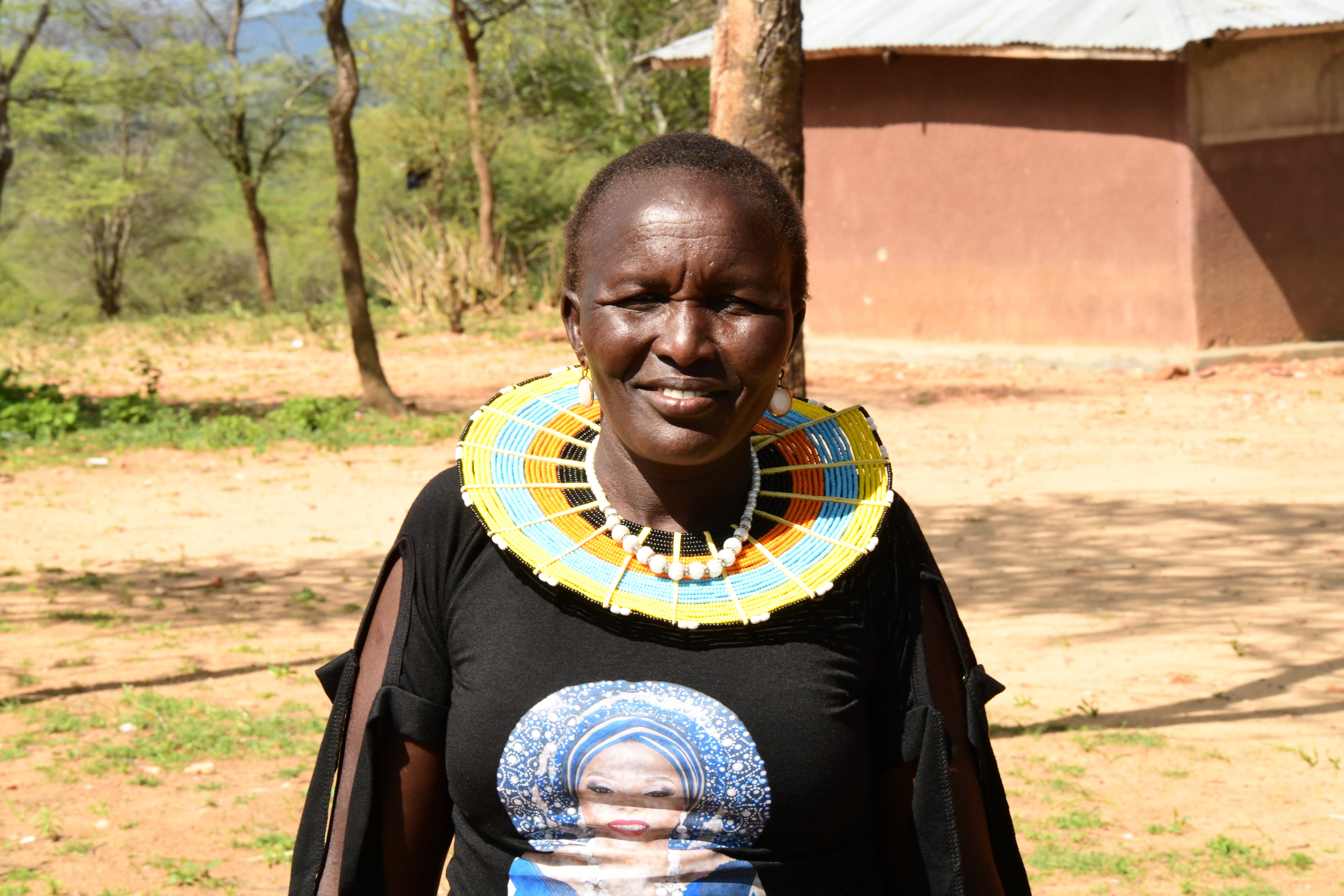From Tradition to Transformation: The Journey of Priscilla Nangiru Nakolio, Former FGM Surgeon
Date:

Wearing stunning locally made African jewelry, 43-year-old Priscilla Nangiru Nakolio radiates confidence as we sit down for an interview on a sunny afternoon in Lochengenge village, Amudat Sub County, located approximately 386 kilometers northeast of Uganda's capital, Kampala.
Before 2013, Priscilla was a fervent supporter and practitioner of the notorious female genital mutilation (FGM) in her community, having once been a victim of the cruel practice herself.
However, in 2013, Priscilla found herself in constant conflict after the government, through the FGM Act 2010, moved to abolish the practice of FGM in Uganda, aiming to protect the internationally recognized human rights of girls and women.
"Even after the law was passed, we continued to smuggle these girls to distant places, including crossing the border to Kenya, to perform the ritual. It was always incredibly risky and exhausting," Priscilla recalls.
Due to the risks involved and constant pursuit by authorities, Priscilla recounts a pivotal moment when she listened to a radio program raising awareness about the dangers of FGM. It was then that she committed to abandoning the practice and collaborating with the government and partners in combating this harmful tradition.
The radio program aired on Nenah FM in Moroto, sensitized communities on the dangers of FGM and GBV prevention.
"I was deeply moved by how the radio presenters articulated the issues surrounding FGM. It was then that I realized the harm I was inflicting on young girls—jeopardizing their education and compromising their health," Priscilla says.
According to the 2022 Uganda Demographic and Health Survey (UDHS), the prevalence of FGM in Uganda is one of the lowest in East Africa, at just 0.2% among women aged 15-49 years. However, FGM still predominantly affects disadvantaged women from poor households with low education levels, particularly in rural areas.
Despite the practice being made illegal by the 2010 Prohibition of Female Genital Mutilation Act, FGM remains deeply rooted in local norms and traditions in eastern Uganda. It is still prevalent in some districts of Sebei and Karamoja, where FGM prevalence among women aged 15-49 years can exceed 50% in certain sub-counties.
Priscilla is currently the chairperson of Natukuman Women Drama Group, which translates to "Seeing from Above," in the Pokot local dialect. Through support from UN Women, the Communication for Development Foundation Uganda (CDFU), trained Natukuman Women Drama Group on leadership skills and the rights of women and girls under the UN Spotlight Initiative (2018-2023) funded by the European Union and other partners.
Priscilla says that the drama group's mission is to support women who have been left behind to achieve development.
"We perform skits and dramas at gatherings, like markets, to educate people and inspire them to oppose FGM and GBV," Priscilla says.
Priscilla notes that her community has seen a significant decrease in harmful practices like FGM and GBV, which she credits to the drama group. She emphasizes that the group has played a crucial role in fostering social and behavioral change among community members in various ways.
"We have expanded our sensitization efforts to include conversations with parents about their children's education. A well-educated community gives us hope that we can eventually eradicate FGM and GBV," she says.
In Uganda, the Spotlight Initiative is implemented by the Government of Uganda, the European Union, UN Women, UNFPA, UNICEF, UNDP and UNHCR in partnership with OHCHR, IOM, Pulse Lab and civil society. Since 2019, almost 900 people in Uganda have completed training on how to assist women and girls experiencing violence with support from Spotlight Initiative.